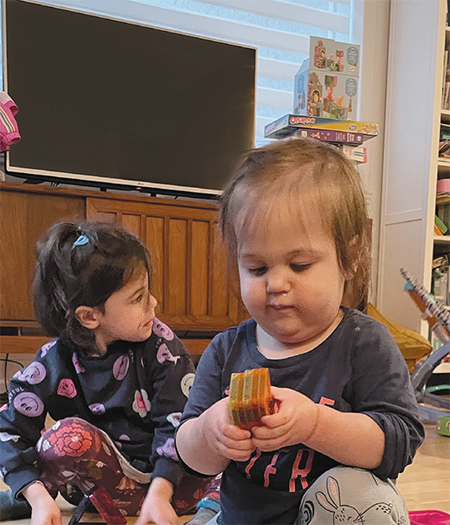Screens

![]() It is recommended that screens be turned off during playtime.
It is recommended that screens be turned off during playtime.
Photo: Emilie Audy

Children younger than age 2 should not spend time in front of screens. It is also recommended to turn off all screens (TV, phone, tablet, etc.) when spending time together as a family, even if they’re simply left on nearby.
These recommendations are being made because we’re increasingly discovering the negative effects of screens on children. For example, young children who are often exposed to screens have a higher risk of developing language difficulties.
Children are attracted by the light, sounds, and colours on screens. They can easily handle mobile phones and tablets. That doesn’t mean it’s good for them. Despite their name, so-called educational apps and videos do not help children develop either.
Young children learn by interacting and developing relationships with others. Talking to your child, singing him a song, looking at a book with him, and playing with him are the best ways to help her develop. When you have things to do, instead of putting your child in front of a screen, you can leave toys and books within her reach. For some tasks, you can also keep your child in a baby carrier (see Baby carriers).
When you’re away from your child for a long time, you can still use a screen to talk to him. You can also use a screen to help your child stay connected with loved ones who live far away. During the chat, an adult should help your child interact with the person on the screen by repeating and explaining what’s being said.
Young children learn best when you’re not distracted by a screen (e.g., phone, TV). Your child needs your attention— and your gaze. As much as possible, avoid using a screen when you’re with him. When your child sees you looking at a screen, he may want to use it, too. Later, he may mimic your use of screens.
![]() It’s recommended that children under age 2 not be exposed to screens. There is more and more evidence about the negative effects of screens on children.
It’s recommended that children under age 2 not be exposed to screens. There is more and more evidence about the negative effects of screens on children.


